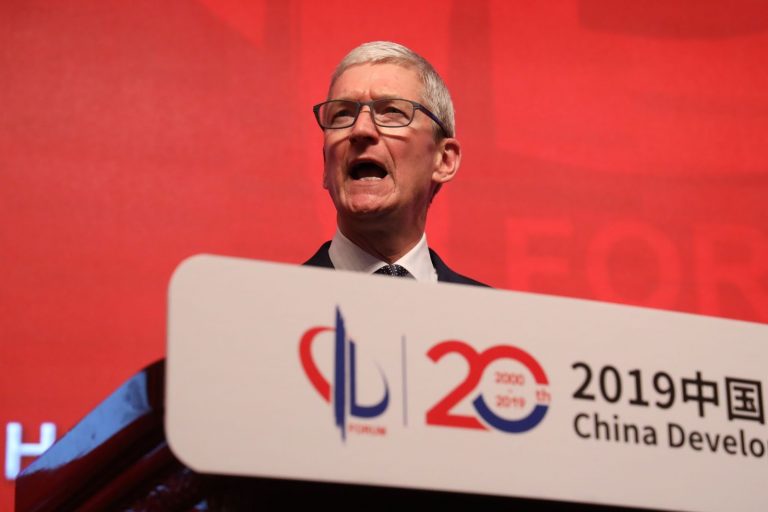A report found that at least 82 well-known global brands in the technology, clothing and automotive sectors, have utilized Uyghurs Muslims at their production facilities in China. These minority peoples were restricted in their personal freedom and sent to forced labor in factories across the mainland. The expose also found that these companies were working with the Chinese Communist Party (CCP) to violate human rights while discriminating against ethnic minorities in their hiring practices.
The Information reported on June 8 that at least seven Apple suppliers are involved in the use of forced labor, namely Advanced-Connectek, AcBel Polytech, Avary Holding, CN Innovations, Luxshare Precision Industry, Shenzhen Deren Electronic Co. Ltd., Luxshare Precision Industry, Shenzhen Deren Electronic Co, and Suzhou Dongshan Precision Manufacturing Co. Ltd.
While taking advantage of a forced labor workforce, these same companies also indicate in online job postings that they will not accept applications from ethnic minorities in China. For example, Biel Crystal, which makes glass for the iPhone, said in an April job posting that it “does not accept applications from Tibetans, Uyghurs, Khui , Yi, or Dongxiang from Tibet or Xinjiang”.
Another Apple China supplier, Cathay Tat Ming, wrote in its job posting that it would only accept applicants from “ethnic minorities (except Uyghurs) with no dietary restrictions”.
This echoes the ongoing persecution of ethnic minorities or dissidents in China. By depriving them of labor opportunities and keeping them in a poor, passive social situation, they are forced to submit to the authorities.
Success
You are now signed up for our newsletter
Success
Check your email to complete sign up
On June 8, the U.S. Congress and the Administration’s China Committee (CECC) issued a joint statement calling on Apple to ensure that its supply chain is free of “forced labor” and to exclude Chinese suppliers participating in the Chinese government’s “labor transfer” program, particularly those participating in the Xinjiang region.
In their joint statement, Sen. Jeff Merkley (D-MA), Chairman of the Congressional and Executive Branch China Committee, and Rep. James P. McGovern (D-MA), Co-Chairman of the Committee, stated, “The mounting evidence is beyond troubling. Despite persistent assurances from Apple that their supply chains were free of forced labor, we now have evidence that it is tainted.”
In addition, another ASPI report released last month noted that fertility rates in predominantly ethnic minority counties fell by 43.7 percent from 2017 to 2018, with more than 160,000 fewer births. In contrast, counties dominated by Han Chinese had slightly more births.
Nathan Ruser, a researcher at the ASPI and one of the authors of the report, said this extreme decline in fertility is unprecedented since the United Nations began collecting global fertility data 71 years ago, surpassing fertility declines during the Syrian civil war and the genocide in Rwanda and Cambodia.
In March of 2020, the Australian Strategic Policy Institute (ASPI) released a report entitled Uyghurs for Sale, which revealed that at least 82 international brands, including Apple, BMW, Gap, Huawei, Nike, Samsung, Sony and Volkswagen are using forced labor in China.
Despite Beijing’s repeated denials about the persecution of the human rights of ethnic minorities in Xinjiang and claims that the region is full of so-called “surplus labor” or “poverty-stricken labor,” the report cites multiple sources and evidence that Uyghur workers are transported by special trains to factories across China, put under a “military-style” management and subjected to years of forced labor.
“In 2017, according to state media reports, 20,859 ‘rural surplus laborers’ from Xinjiang were transferred to work in other provinces. Based on ASPI’s analysis of published data, an estimated 28,000 people were transferred for employment in 2018. In 2019, an estimated 32,000 people were transferred out of the region,” said the report.
Official Chinese reports also reveal the authority not only physically tracked these laborers but also established a database, which was developed by Xinjiang’s Human Resources and Social Affairs Department and maintained by a team of 100 specialists located in Xinjiang, designed to record the medical, ideological and employment details of each worker.
Beijing marks Uyghurs as criminals
Beijing has claimed that Uyghurs entering re-education camps are criminals and that the purpose of the camps is to reintegrate them into society. However, the report found ethnic minority workers from Xinjiang who are not known to be former detainees may also be forced to work under threat of detention, the intimidation of family members, and a range of restrictions on their freedom.
“The tainted global supply chain that results from these practices means that it is now difficult to guarantee that products manufactured in China are free from forced labor,” concludes the report.
“The treatment of Uyghurs described in this report’s case studies is in breach of China’s Constitution, which prohibits discrimination based on ethnicity or religious belief, as well as international law.”














